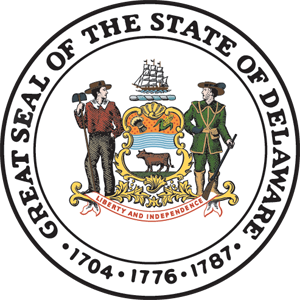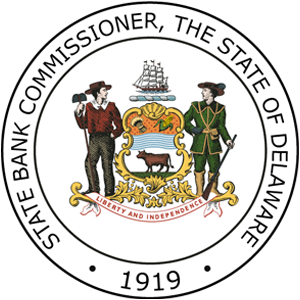
- About
- Services
- Information
- Public Meetings
- Annual Reports
- Bank Franchise Tax
- Financial Forms & Instructions
- Regulations
- Banks, Trust Companies, and Building and Loan Associations
- Licensed Non-Depository Institutions
- Delaware Approved Mortgage Loan Originators
- Assets, Deposits, and Net Income Reports
- Delaware Bank Employees
- Financial Literacy Education Fund
- FAQs
- Contact




